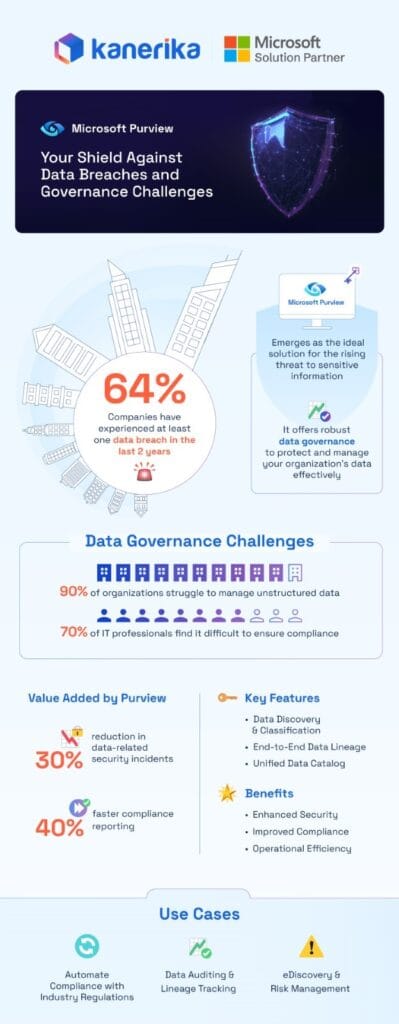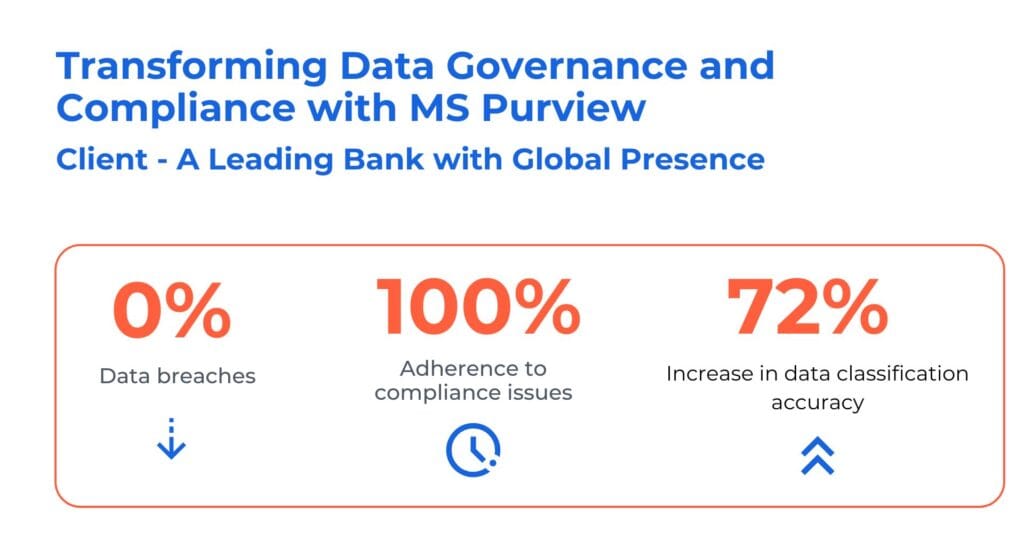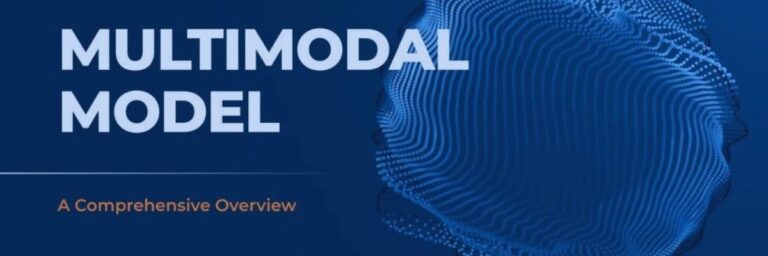The shocking $1.3 billion dollar fine imposed on Meta in 2023 for EU privacy violations serves as a stark reminder of why data governance is a business imperative. Tech giants and Fortune 500 companies are radically transforming their approach to data governance, with Microsoft leading the charge through its Purview platform that now manages large volumes of data across its enterprise.
As artificial intelligence, privacy regulations, and cloud technologies continue to reshape businesses, keeping up with the data governance trends has become critical to stay competitive in the data-driven economy. From automated compliance to ethical AI governance, the emerging trends are set to redefine how organizations balance data innovation with responsibility.
Significance of Data Governance in the Age of Data and AI
1. AI Model Reliability
AI systems are only as good as their training data. Data governance ensures AI models learn from properly labeled, unbiased, and representative datasets. This directly impacts model accuracy and fairness, preventing discriminatory outcomes in automated decision-making.
2. Regulatory Compliance
Organizations must comply with laws like GDPR, CCPA, and HIPAA. Strong data governance provides a framework to track data lineage, manage consent, and maintain audit trails. This reduces the risk of fines and reputational damage from compliance violations.
3. Quality Decision-Making
Data governance ensures that organizations work with accurate, consistent data. When business leaders rely on high-quality data, they make better strategic decisions. For example, clean, well-governed customer data helps identify market trends and opportunities with greater precision.
4. Cost Efficiency
Poor data management leads to duplicate records, inconsistent information, and wasted storage. Data governance reduces these inefficiencies by establishing clear data ownership, retention policies, and quality standards, leading to significant cost savings.
5. Data Security
With cyber threats growing more sophisticated, data governance helps identify sensitive information and apply appropriate protection measures. This includes access controls, encryption, and monitoring, reducing the risk of data breaches and unauthorized access.
6. Operational Efficiency
Well-governed data is easier to find, use, and share across departments. This reduces time spent searching for information and resolving data discrepancies, allowing teams to focus on value-adding activities rather than data cleanup.
7. Innovation Support
Structured data governance enables faster development of new products and services. When data is well-documented and accessible, teams can quickly experiment with new ideas and bring innovations to market more efficiently.
8. Stakeholder Trust
Organizations that demonstrate responsible data handling build trust with customers, partners, and investors. This trust translates into stronger relationships, customer loyalty, and competitive advantage in an increasingly privacy-conscious market.
9. Cross-functional Collaboration
Data governance creates common standards and vocabularies across departments. This shared understanding facilitates collaboration, reduces misunderstandings, and enables more effective cross-functional projects and initiatives.
10. Risk Management
Systematic data governance helps identify and mitigate risks before they become problems. This includes monitoring data quality issues, tracking usage patterns, and ensuring appropriate data handling throughout its lifecycle.

Top 10 Data Governance Trends Shaping Enterprise Data Security
1. The Impact of AI and Machine Learning on Data Governance
Artificial intelligence and machine learning are revolutionizing how organizations approach data governance. These technologies enable automated data classification, real-time policy enforcement, and intelligent metadata management at scale. By leveraging AI capabilities, organizations can now handle massive datasets with greater accuracy and efficiency while maintaining compliance with evolving regulations.
- Automated data quality monitoring and anomaly detection
- AI-powered sensitive data discovery and classification
- Machine learning for metadata enrichment and tagging
- Predictive analytics for governance risk assessment
- Smart data lineage tracking and impact analysis
2. Rise of Data Governance as a Service (DGaaS)
DGaaS platforms are emerging as scalable solutions that democratize access to sophisticated data governance capabilities. These cloud-based services offer pre-built frameworks, automated workflows, and integrated tools that enable organizations to implement robust governance programs without significant infrastructure investments.
- Subscription-based governance tools and frameworks
- Pre-configured compliance templates and workflows
- Integrated data quality and security features
- Scalable governance infrastructure
- Rapid deployment and implementation options
3. Ethical AI Governance
As AI systems become more prevalent in decision-making processes, organizations are implementing specialized governance frameworks to ensure responsible AI development and deployment. This trend focuses on transparency, fairness, and accountability in AI systems while managing potential biases and ethical concerns.
- AI model transparency and explainability frameworks
- Bias detection and mitigation protocols
- Ethical AI development guidelines
- Model validation and monitoring systems
- AI accountability and documentation requirements
4. Privacy-First Data Governance
With increasing privacy regulations and consumer awareness, organizations are adopting privacy-by-design approaches in their data governance strategies. This proactive stance ensures privacy considerations are embedded into data management processes from the outset rather than added as an afterthought.
- Privacy-enhancing technologies integration
- Automated consent management systems
- Privacy impact assessments
- Data minimization protocols
- Privacy-aware data sharing frameworks
5. Cloud-Native Data Governance
Cloud-native governance frameworks are designed to address the unique challenges of managing data across distributed cloud environments. These approaches leverage cloud-native capabilities for scalability, automation, and integration while ensuring consistent governance across multiple cloud platforms.
- Multi-cloud governance standardization
- Cloud-specific compliance controls
- Automated cloud resource governance
- Distributed data governance models
- Cloud cost optimization through governance
6. DataOps and Data Governance Integration
The integration of DataOps practices with data governance creates a more agile and automated approach to data management. This convergence enables organizations to maintain governance standards while accelerating data delivery and ensuring quality throughout the data lifecycle.
- Automated governance workflows
- Continuous compliance monitoring
- Integrated data quality checks
- Version control for governance policies
- Automated policy enforcement
7. Data Democratization and Self-Service Analytics
Organizations are balancing the need for controlled data access with the demand for self-service analytics capabilities. This trend focuses on enabling broader data access while maintaining appropriate governance controls and ensuring data literacy across the organization.
- Governed data visualization tools
- Role-based access controls
- Data literacy programs
- Automated data discovery portals
8. Data Sovereignty and Localization
As countries implement stricter data residency requirements, organizations must adapt their governance frameworks to address data sovereignty concerns. This includes managing data storage locations, processing requirements, and cross-border data transfers.
- Geographic data mapping tools
- Regional compliance monitoring
- Data residency tracking systems
- Cross-border transfer controls
- Local processing requirements management
9. Collaborative Data Governance
Organizations are moving towards more collaborative governance models that involve stakeholders across different departments and even external partners. This approach ensures broader buy-in and more effective governance implementation.
- Cross-functional governance committees
- Shared responsibility frameworks
- Collaborative policy development
- Stakeholder engagement tools
- Inter-organizational data sharing protocols
10. Environmental, Social, and Governance (ESG) Data
ESG data governance is becoming crucial as organizations face increasing pressure to report on their environmental and social impact. This trend focuses on managing and validating ESG data while ensuring accurate reporting and transparency.
- ESG data collection frameworks
- Sustainability metrics tracking
- Social impact data management
- Environmental compliance monitoring
- ESG reporting automation
How to Enhance Your Data Governance & Compliance with Microsoft Purview
Explore how Microsoft Purview simplifies data governance and compliance with powerful tools for managing, protecting, and securing your data effectively.
8 Best Data Governance Solutions for 2025 and Beyond
1. Microsoft Purview
Microsoft’s unified data governance solution that combines the capabilities of Azure Purview and Microsoft 365 compliance tools. It provides end-to-end data governance across on-premises, multi-cloud, and SaaS environments with automated data discovery and AI-powered classification.
Key Features:
- Automated data discovery and sensitive data classification
- Built-in data catalog with business glossary
- Data lineage visualization across hybrid environments
- Integration with Microsoft 365 and Azure services
- AI-powered data classification and labeling
- Risk and compliance management dashboards
- Data map for asset discovery and relationship visualization
2. Collibra Data Intelligence Cloud
A cloud-native platform that combines data catalog, data privacy, and data governance capabilities. Collibra enables organizations to automate data governance processes while providing comprehensive visibility into their data landscape.
Key Features:
- Automated data classification and cataloging
- Privacy impact assessments
- Data lineage tracking
- Workflow automation
- Reference data management
- Policy management and enforcement
3. Ketch Data Privacy Platform
Ketch provides an automation-first approach to data governance, privacy, and compliance. Its platform enables organizations to manage data rights, consent, and access policies across complex data ecosystems. Ketch helps unify privacy, data security, and governance initiatives by translating business policies into technical enforcement across data systems in real time.
Key Features:
- Automated consent and preference management
- Dynamic data mapping and policy enforcement
- Real-time data subject rights fulfillment (DSAR automation)
- Integration with major data warehouses, CRMs, and marketing systems
- Unified policy framework for privacy and data governance
- AI-driven data classification and risk insights
- Compliance automation for GDPR, CCPA, and global privacy laws
4. Informatica Axon Data Governance
An AI-powered data governance solution that provides automated data discovery, business glossary management, and data quality monitoring. It leverages Informatica’s CLAIRE AI engine for intelligent automation.
Key Features:
- AI-driven metadata management
- Automated data quality scoring
- Business glossary and taxonomy management
- Impact analysis capabilities
- Integration with Informatica’s data management suite
- Role-based access control
- Compliance monitoring and reporting
5. IBM Watson Knowledge Catalog
An AI-powered data catalog and governance platform that helps organizations discover, catalog, and govern their data assets. It provides automated data classification and policy enforcement across hybrid cloud environments.
Key Features:
- AI-powered data discovery and classification
- Automated policy enforcement
- Business term management
- Machine learning-based data profiling
- Collaborative governance workflows
6. Alation Data Catalog
A data intelligence platform that combines machine learning and human insight to drive data governance. It focuses on making data discoverable and governable while promoting data literacy across organizations.
Key Features:
- Machine learning-powered data stewardship
- Active data governance
- Query optimization suggestions
- Collaborative workflows
- Integration with popular BI tools
7. OneTrust DataGovernance
A comprehensive data governance platform that focuses on privacy-aware governance and regulatory compliance. It provides automated data discovery, classification, and mapping capabilities with built-in privacy controls.
Key Features:
- Automated data discovery and classification
- Privacy risk assessments
- Consent management
- Data mapping automation
- Regulatory compliance monitoring
- Third-party risk management
- Integration with privacy management tools
8. SAP Master Data Governance
An enterprise-grade solution for centralized master data management and governance. It provides comprehensive capabilities for managing and governing master data across the organization while ensuring data quality and consistency.
Key Features:
- Centralized master data management
- Data quality monitoring
- Workflow automation
- Change request management
- Data consolidation and harmonization
- Integration with SAP applications
- Role-based governance
Microsoft Purview Information Protection: What You Need to Know
Discover how Microsoft Purview Information Protection helps safeguard sensitive data with advanced labeling, encryption, and compliance tools.
Case Study: Enhancing Data Governance & Compliance with MS Purview
The client is a leading Bank with a Global Presence. They faced significant challenges related to their data management and security practices. These included difficulties in monitoring adherence to POSH (Prevention of Sexual Harassment) regulations, an inability to gain a unified view of data across different points, and issues in identifying assets and attributes necessary for implementing business changes. Additionally, they struggled with the leakage of confidential information, which risked falling into the wrong hands, and faced challenges due to the overexposure of sensitive subject data.
We resolved their issues by leveraging the capabilities of MS Purview and Fabric:
- Implemented Communication compliance policies to monitor communications among employees for inappropriate text, and conflicts
- Identified sensitive information, implemented classifiers and implemented sensitive labels.
- Configured Data Loss Prevention policies blocking sharing of data among undesirable teams and groups
- Configured system to monitor and alert in case of data theft and data leakage by leaving employees and distressed employees

Safeguard Your Data with Kanerika’s Robust Data Governance Solutions
As a leading data and AI solutions provider, Kanerika understands the critical role of strong data governance for businesses, especially those managing large data volumes and leveraging AI technologies. Our expertise lies in analyzing your company’s data infrastructure to design tailored governance solutions that meet your unique needs.
We utilize cutting-edge tools like Microsoft Purview to develop robust frameworks that protect both your company’s and your customers’ data. Our solutions not only ensure compliance with global standards but also empower your business to make data-driven decisions with confidence.
With Kanerika, you gain a partner dedicated to securing your data and enabling efficient operations, allowing you to focus on innovation and growth. Choose us to elevate your data governance strategy and drive sustainable success.
Frequently Asked Questions
What is the future of data governance?
Data governance is evolving toward automated compliance, AI-driven data quality management, and real-time data protection. Key trends include federated governance models, privacy-preserving technologies, and increased focus on ethical AI governance. Organizations are moving toward integrated governance frameworks that balance innovation with compliance.
What are the 4 pillars of data governance?
The four pillars are: Data Quality (ensuring accuracy and reliability), Data Security (protecting sensitive information), Data Compliance (meeting regulatory requirements), and Data Management (organizing and maintaining data throughout its lifecycle). These pillars form the foundation for effective organizational data governance.
What is the data governance market in 2024?
Based on market research available as of early 2024, the global data governance market is experiencing significant growth, driven by increasing regulatory requirements and digital transformation initiatives. The market is characterized by cloud-based solutions and increasing demand for privacy-focused governance tools.
Is GDPR part of data governance?
Yes, GDPR is a crucial component of data governance. It sets specific requirements for how organizations must handle personal data of EU residents, including data protection, privacy rights, and consent management. GDPR has become a global benchmark for data governance practices.
What are the 3 key elements of good data governance?
The key elements are: People (clear roles and responsibilities), Processes (standardized procedures for data handling), and Technology (tools and platforms for implementation). These elements must work together seamlessly to create an effective data governance program.
What is data governance roadmap?
A data governance roadmap is a strategic plan that outlines the steps organizations take to implement and mature their data governance program. It typically includes assessment, planning, implementation, and continuous improvement phases, with clear milestones and success metrics.
What is the data governance framework?
A data governance framework is a structured approach to managing data assets. It includes policies, procedures, roles, responsibilities, and metrics that ensure proper data handling. The framework provides guidelines for data quality, security, compliance, and lifecycle management.
What is data governance lifecycle?
The data governance lifecycle encompasses creation, storage, usage, archival, and deletion of data. It includes phases of planning, implementation, monitoring, and optimization. Each phase requires specific controls and procedures to ensure proper data management and compliance.









